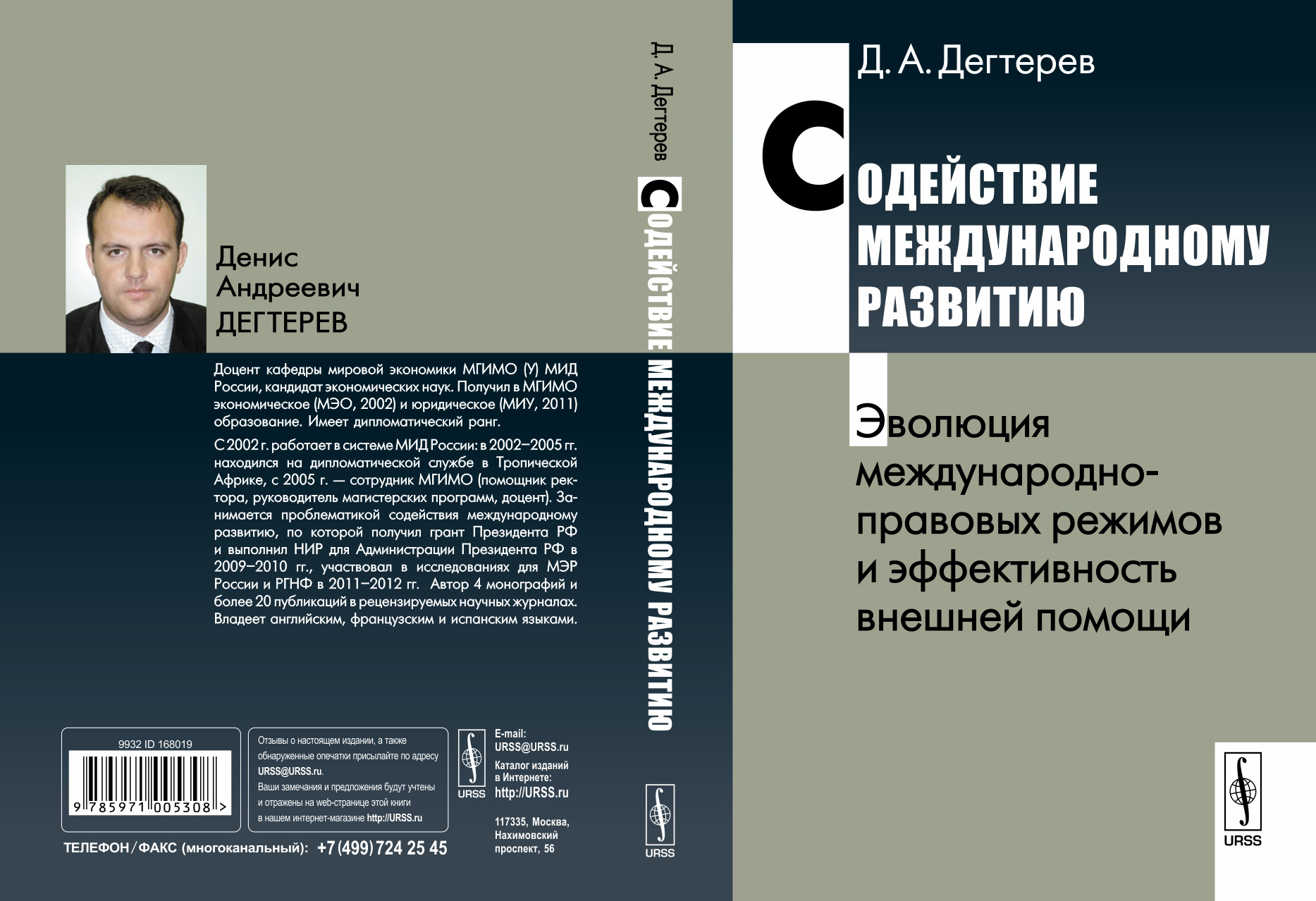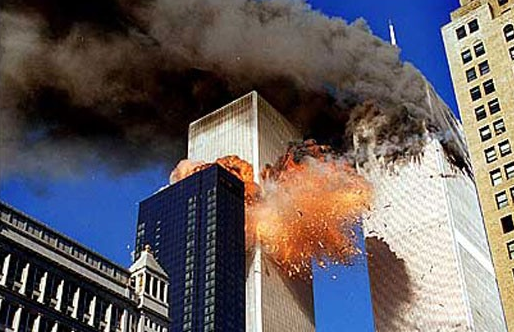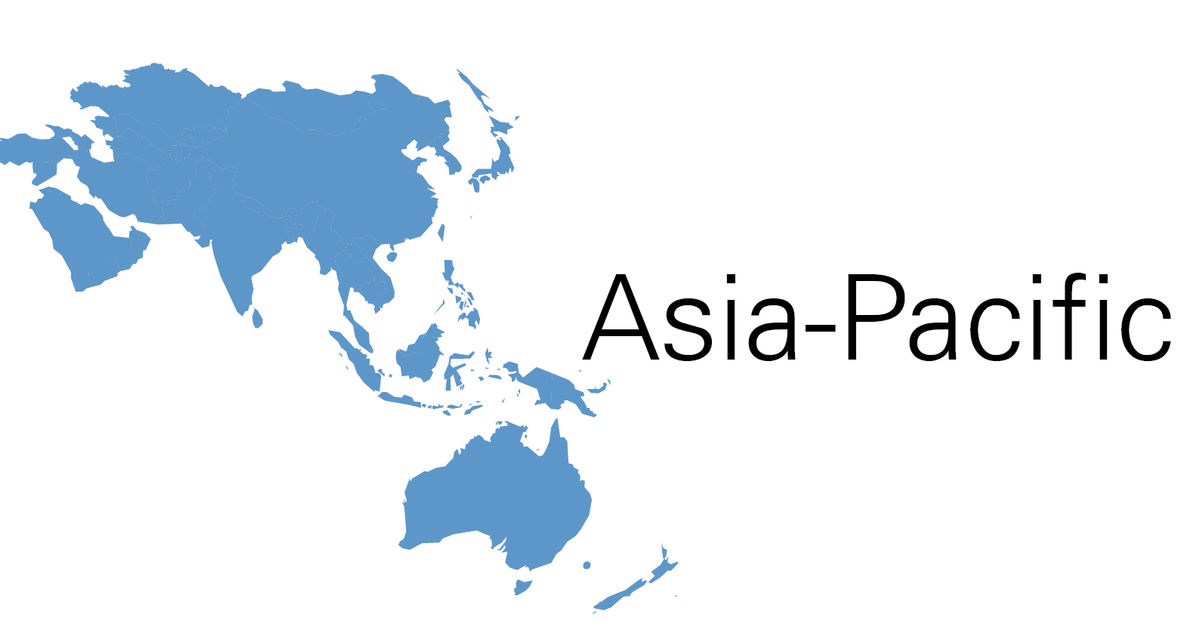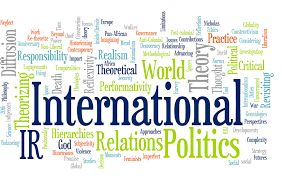- Преподаватель: Светлана Александровна Бокерия
- Преподаватель: Анна Гарнуковна Геворгян
- Преподаватель: Аркадий Алексеевич Еремин
- Преподаватель: Лусине Арменовна Мелконян
- Преподаватель: Николета-Флорина Морару
- Преподаватель: Мирзет Сафетович Рамич
Objectives of discipline: the Main purpose of discipline is formation at students of system and holistic conceptions of features of development of the modern world order, the place and role of Russia in the modern world; conceptual bases and strategies of Russian foreign policy, about Russia's position in the emerging international conflicts and its role in resolving them; develop in the students the skills of research work.
Course objectives:
– to deepen theoretical knowledge of students in the field of international relations;
– to study features of development of the world order at the end of XX – beginning of XXI centuries;
– to show the place of Russia in the modern system of international relations on global, regional and local levels;
– to perform conceptual basis of the foreign policy of the Russian Federation;
– define the concept of "international conflict";
– to consider modern scientific and practical approaches to conflict resolution;
to analyze specific international conflicts of the late XX – early XXI centuries;
to evaluate the role of Russia in resolving them;
– examine the basic sources and literature on the subject.
Organizational-methodical building of the course:
The course consists of seminars (in the form of reports, discussions, business and role-playing games), consultations. During the semester two written tests are held certification, students prepare analytical papers on assigned subjects. On the recommendation of the teacher and to write analytical notes students read additional sources and literature.
- Преподаватель: Марина Андреевна Баранник
- Преподаватель: Дмитрий Алексеевич Сидоров
This course is a core discipline of the Master's program «Global Security and Development Cooperation».
The main objective of the course is to give basics of development cooperation as the basis of North-South relations as well as one of the most effective tools for promoting national interests in the international arena together with diplomacy and defense (3D concept). The course is aimed at mastering the terminology in the field of development cooperation and understanding of the international assistance mechanisms.
The course gives the basic definitions and tools of development cooperation; describes the mechanisms of international assistance on multilateral (within international organizations), as well as on a bilateral basis. A review of the main approaches to evaluating the effectiveness of international development assistance both at the international and national levels is provided.

- Преподаватель: Денис Андреевич Дегтерев
- Преподаватель: Селия Дидук
- Преподаватель: Брайан Мугаби
Prerequisits of academic subject: bases of international relations, world and nationals economies, history of international relations based of foreign-policy activities of states.
Postrequisites: theoretical, practical knowledge of methods and mechanisms analyzing of international relations in world policy, world and nationals economies.
Discipline description: lectures and practical works (seminar) are one of fundamental components studied on system of international relations, bases of foreign-policy activity of states, history of international relations, knowledge of world and national economy architectures, etc. The course aims to aid the dissemination of new research in a growing academic field. It helps to create a critical attitude and critical thinking skills in relation to their own beliefs and commitments, as well as to various sources of information and authorities. The study of international relations has become multi-disciplinary, thus benefiting from a variety of different sources and approaches.
- Преподаватель: Мешкин Даниал Ранджбар
- Преподаватель: Ирина Фанилевна Шириязданова
Foreign Policy Process and the Russian Federation Foreign Policy Formulation
Objectives of the Discipline:
- give an integral vision of international processes and the place of Russia in the international relations system;
- consider basic directions of the RF foreign policy, analyze its targets and tasks;
- study the content of main regulatory and legal instruments (“Concept of the Foreign Policy of the Russian Federation. Approved by President of the Russian Federation V. Putin. on 12 February 2013”, “RF National Security Strategy till 2020”).
- Преподаватель: Ренат Тарикович Зиннуров
- Преподаватель: Ирина Фанилевна Шириязданова
Course objectives:
· to provide an integral overview of the main problems of contemporary global security;
· to provide students with the peculiarities and specificity of the current state of global security;
· to give an idea about the main approaches and schools, new challenges, and the current state of defence capacity of the leading States of the world;
· to analyze the principles of international security;
· to examine the major Russian and foreign theoretical achievements in the field of global security;
· to address key domestic and international instruments in the field in question;
· to review the changes in political environment of global security;
· to present the relationship between global and local factors building regional security;
· to consider the impact of global factors on security.

- Преподаватель: Максим Андреевич Никулин
- Преподаватель: Олумиде Эммануэль Олувакайоде
The aim of this directed reading course is to provide an intellectual challenge to students by engaging with major theories, concepts and issues in security studies. The course provides an introduction and overview to key theoretical, empirical and policy issues in international security debates and examines the changing nature of security in a post-Cold war and post-September 11th context. The module provides a basis for further post-graduate studies in international relations and security studies or for careers in governments, international organizations, NGOs and the media
This
course will be taught as a workshop. After an introduction of key concepts and
approaches in security studies, students will present papers examining
normative, empirical and policy dimensions of specific security issues.
Workshop participants will work together in a constructive and positive manner
to reach a consensus on a series of
student-led policy proposals. The final goal is for each student write a
superior paper, which may form the foundations of a graduate-level publication
- Преподаватель: Жан Мартьаль Ндонго Нлате
- Преподаватель: Олег Константинович Петрович-Белкин
1. Course description and goals
The aim of this directed reading course is to provide an intellectual challenge to students by engaging with major theories, concepts and issues in security studies. The course provides an introduction and overview to key theoretical, empirical and policy issues in Human Rights and International Security debates and examines the changing nature of security in a post-Cold war and post-September 11th context. The module provides a basis for further post-graduate studies in international relations and security studies or for careers in governments, international organizations, NGOs and the media.
This course will be taught as a workshop. After an introduction of key concepts and approaches in security studies, students will present papers examining normative, empirical and policy dimensions of specific security issues. Workshop participants will work together in a constructive and positive manner to reach a consensus on a series of student-led policy proposals. The final goal is for each student write a superior paper, which may form the foundations of a graduate-level publication.
2. The place of the discipline in the General Subject structure:
The course belongs to the humanities, social cycle. The completion of this course is a prerequisite for the discipline . There are no prerequisite for this course.
3.Competences development requirements:
By the end of the course students will acquire or enhance the following skills:
- will be able to work with theoretical knowledge at the forefront of their discipline;
- will be aware of the ethical dimensions of the scholarly work done in their discipline in general as well as of their own work in particular;
- will have a comprehensive understanding of methods and methodologies in their discipline;
- will be able to undertake analysis of complex, incomplete or contradictory areas of knowledge;
- will have a level of conceptual understanding that will allow them to critically evaluate research, advanced scholarship and methodologies and argue alternative approaches;
- will be reflective and self-critical in their research work;
- will be able to engage in academic and professional communication orally and in writing;
- will have independent learning ability required for continuing professional study.
- Преподаватель: Яо Никэз Аду
- Преподаватель: Олег Константинович Петрович-Белкин
- Преподаватель: Елена Михайловна Савичева
The course introduces and explores the role, functions and effectiveness of core International Organisations. It offers a comprehensive introduction to the theory and practice of international organizations. The course seeks to give students an understanding of the major theoretical and empirical aspects of the role of international organisations in international politics.
Aims and objectives
The course seeks to give students an understanding of the major theoretical and empirical aspects of the role of international organisations in maintenance of peace
· the practice of international cooperation and conflict,
· the maintenance of international peace and security,
· the management of international economic relations,
· the prosecution of international crimes, and related matters of concern to international society.
Credits - 2 (36h)
English- Преподаватель: Хонрада Габриэль Джоэль 1032195028
- Преподаватель: Хонрада Габриэль Джоэль 1042215026
- Преподаватель: Светлана Александровна Бокерия
- Преподаватель: Олумиде Эммануэль Олувакайоде
- Преподаватель: Денис Андреевич Дегтерев
- Преподаватель: Умар Сидибе
Цели и задачи дисциплины:
- дать целостное представление о международном
терроризме как угрозе международной безопасности;
- рассмотреть международный терроризм: понятие,
сущность, содержание;
- изучить истоки и сущность терроризма;
- рассмотреть основные течения в современном терроризме;
- изучить зарубежный опыт противодействия терроризму;
- исследовать роль России в противодействии международному терроризму.
Общая трудоемкость дисциплины 108 часов.

- Преподаватель: Захид Шахаб Ахмед
- Преподаватель: Ренат Тарикович Зиннуров
- Преподаватель: Брайан Мугаби
Test (mid-term certification)
Pass the test. You have one attempt, 30 minutes of time for 15 questions.
- Преподаватель: Владимир Иванович Белов (Юртаев)
- Преподаватель: Жан Мартьаль Ндонго Нлате
The aim of this directed reading course is to provide an intellectual challenge to students by engaging with major theories, concepts and issues in global security studies. The course provides an introduction and overview to the theoretical, empirical and policy basics of international relations via the analysis of the topic of migrations. The module provides essential knowledge for further post-graduate studies in international relations and security studies in terms of understanding the concept of Global Security.
This course will be taught as a practically oriented workshop. After an introduction of key concepts and approaches, students will conduct an independent research of current migration policies. Workshop participants will work together in a constructive and positive manner to reach a consensus on a series of student-led discussion. The final goal is for each student to gain unique knowledge in the sphere of global security for the further qualification research.
International migration is one of the most important issues in global politics. This module examines how states, regional organisations and international institutions respond to the challenges of international migration; which role the issue of migration plays in international agreements and disputes. This course introduces students to the study of international migration from an interdisciplinary perspective with an emphasis on the political actors and processes involved in the movement of people across borders in North and Latin America, Europe, Africa, Middle East and Asia.
The module encourages students to assess leading conceptual and theoretical interpretations of the relationships between international migration and ideas such as sovereignty, rights and protection. The course also addresses the possibility of the ‘global governance’ of international migration.
The module begins with a general introduction of the issue of migration in historical perspective and main concepts in the field of migration studies, then it addresses the challenges of migration in different regions and examines some responses of institutions, in national and international public sphere.
- Преподаватель: Оксана Алексеевна Моргунова
Course description and goals
Marking of new risks in international relations and teaching students to make prognosis and appreciate them from objective positions. The course is prepared for students, who have essential basic knowledge at such subjects as “Theory of International Relations”, “History of International Relations”, “International Economic Relations” etc.
Main accent is made on analysis of contemporary risks in connection with the process of globalization in all manifestations and first of all economic.
In the program the main attention is paid to the problems arising on the way of sustainable development of contemporary international relations.
Language of instruction: English
72 hours
- Преподаватель: Клэр Аюма Амухайа
- Преподаватель: Брайан Мугаби
- Преподаватель: Елена Федоровна Черненко
The central objective of this course is to explore the role of non-state actors in shaping the institutions and processes of global politics and governance. The focus is on theoretical work and empirical studies that comprehend and analyses global processes beyond the traditional state-centered understanding of the international order. We are concerned in exploring the way in which non-state actors are reconfiguring the relationship between ‘private and public’ that have been prevalent in international and domestic public law and institutions. Our analysis will examine the relationship between states, social movements, and the construction of new regulatory global institutions. We focus on several issues and actors which could include social movements, certification organization such as fair trade, standards organizations, movements struggling for water and land resources, terrorist movements and transnational corporations. The distinctive emphasis of this course is on how non-state actors shape new terrains and practices of governance both inside and outside of the national state.
- Преподаватель: Светлана Александровна Бокерия
- Преподаватель: Олумиде Эммануэль Олувакайоде
The place of discipline in the structure of the OOP: Variable
Section B.1. V.9.
The aim and objectives of the discipline are acquaintance of students with stages of development and formation of professional ethics in general and main moral requirements of professional ethics of the diplomat; formation of professional consciousness of students, professional moral education, orientation of future experts in the international relations on conscientious execution of the professional duty, professional honesty in the State Departments, bodies of authority and management, the international organizations.

- Преподаватель: Винера Саяровна Мухаметжанова
The aim of this directed reading course is to provide an intellectual challenge to students by engaging with major theories, concepts and issues in security studies. The course provides an introduction and overview to the theoretical, empirical and policy basics of international relations via analysis of situational models. The module provides essential knowledge for further post-graduate studies in international relations and security studies in terms of conducting a situational analysis.
This course will be taught as a practically oriented workshop. After an introduction of key concepts and approaches in methodology of situational analysis, students will conduct an independent analysis of current issues in the sphere of international relations. Workshop participants will work together in a constructive and positive manner to reach a consensus on a series of student-led analyses. The final goal is for each student to master this method of analysis and to be able to independently carry it out in a graduation work.
- Преподаватель: Аркадий Алексеевич Еремин
Goal and objectives of the course
The main goal of the course is to study the mechanisms of functioning of regional subsystems of international relations in the 21st century in the context of general laws of international relations and the global historical process. To achieve this goal, the following tasks are being accomplished in the course of teaching the course: to master the extensive factual material that gives a comprehensive view of the formation and development of regional subsystems of international relations in the 21st century; formulate an in-depth understanding of the main stages in the development of the process of integrating the states in regional and sub-regional and other interstate systems, i.e. problems of regionalization in the modern system of international relations; highlight key aspects of the formation of regional, sub regional organizations; To teach students on the basis of the acquired knowledge to independently analyze the political processes and relations taking place in the modern world. In connection with the debatable nature of many issues related to regional subsystems, special emphasis is placed on the independent work of the student with special literature.
- Преподаватель: Анна Гарнуковна Геворгян
- Преподаватель: Ныгусие Кассае
- Преподаватель: Жан Мартьаль Ндонго Нлате
Курс "Russian Language for Foreign Students" предназначен для иностранных студентов-магистрантов. Курс дает студентам знания грамматики и лексики в объеме, позволяющем слушать лекции по специальности, вести дискуссии, участвовать в работе семинаров, читать учебную литературу по предмету, подготовить и защитить курсовой проект по специальности.
Дисциплина читается на русском языке для иностранных студентов (1-2 курс бакалавриата), обучающихся по специальности "Международные отношения" (41.04.05).
Общая трудоемкость дисциплины составляет 6 зачетных единиц.
- Преподаватель: Нина Викторовна Щенникова
Main goal of a course is acquaintance of trainees with the academic research laboratory, receiving basic knowledge by them, skills and abilities as scientists-researchers of university level. The main accent when studying installations and priorities of changing Africa world is made on identification of conceptual aspects of process of changes. The new directions of development of Africa that «The new mapping of Africa » can be called are studied. In focus of research there are trends and new tendencies arising in the course of globalization in the security space of the African continent. The attention is given to judgment of the major factors influencing formations and defining limits of realization of peacekeeping and security policies.
The course aims at providing a comprehensive view of the main branches, themes, problems, methods and mechanisms in modern security problems of Africa. It combines the "topics-based" and the traditional chronological approach to teaching.
Learning Hours: 108
Language: English
- Преподаватель: Владимир Иванович Белов (Юртаев)
Language of the Course- English
Objectives of the Course
The main objective of the course is to provide students with an integral vision of contemporary security issues in Asia-Pacific Region countries, foreign political, domestic political, military and unmilitary threats.
In order to implement the set objective the following tasks are solved:
• · To master large factual material giving an integral vision of security issues in Asia-Pacific region countries and main threats.
• · To become familiar with basic provisions of regulatory instruments adopted within the Asia-Pacific framework to ensure security.
• · To determine the role and place of Russia in the Asia-Pacific region security system.
• · To analyze possible prospects of security assurance in the Asia-Pacific space.

- Преподаватель: Анастасия Александровна Забелла
- Преподаватель: Анатолий Владимирович Цвык
The course is aimed at analysis of a complex of security problems that arose on former soviet territories after the creation of the CIS.
- Преподаватель: Мирмехти Миркамил оглы Агазаде
- Преподаватель: Аркадий Алексеевич Еремин
The aim of this directed reading course is to provide an intellectual challenge to students by engaging with major theories, concepts and issues in security studies. The course provides an introduction and overview to key theoretical, empirical and policy issues in international security debates and examines the changing nature of security in a post-Cold war and post-September 11th context. The module provides a basis for further post-graduate studies in international relations and security studies or for careers in governments, international organizations, NGOs and the media.
This course will be taught as a workshop. After an introduction of key concepts and approaches in security studies, students will present papers examining normative, empirical and policy dimensions of specific security issues. Workshop participants will work together in a constructive and positive manner to reach a consensus on a series of student-led policy proposals. The final goal is for each student write a superior paper, which may form the foundations of a graduate-level publication.
- Преподаватель: Аркадий Алексеевич Еремин
- Преподаватель: Гонзалес Ксавиер Медина
Security Problem in the Russian Federation
Objectives of the Discipline:
· give an integral vision of the RF national security system and its basic elements;
· consider basic national security hazards;
· study the content of main regulatory and legal instruments (“RF National Security Strategy till 2020”, “RF Development Strategy till 2020”) adopted to ensure national security.
- Преподаватель: Ренат Тарикович Зиннуров
The course “Theory of international relations” is a graduate level introduction to international relations theory. It aims at providing students with a broad theoretical background in the field, in preparation for further advanced training, research, or qualifying examinations in IR.
IR research is guided by paradigms, particular ways of looking at international relations. Current international politics is full of dramatic singular events: wars, conflicts, revolutions, financial crisis, interventions and popular campaigns for human rights. IR theory helps to understand and explain those events by equipping us with the appropriate conceptual instruments. Most debates over substantive issues of international politics are best seen through theoretical lenses. The course covers four main theoretical traditions in the study international relations - Realism (Classical//Neo/Postclassical), Liberalism (Classical//Neo/Postclassical), Marxism (Classical//Neo/Postclassical), Critical theory, Constructivism, Postmodernism, as well as academic debates that comprise the IR theoretical landscape. Understanding them will give a necessary foundation for a deep investigation of some of the major topics of IR research.

- Преподаватель: Наталья Викторовна Ивкина
- Преподаватель: Александра Викторовна Худайкулова
Course: Aims and objectives:
- to familiarize students with basic theoretical issues of the discipline in question;
- to give an idea of the main patterns of contemporary international relations;
- to teach how to analyze trends of world politics;
- to develop skills of independent analysis of international events and of their forecasting.
Place of discipline in the structure of the higher education program:
The discipline “World Politics” belongs to the optional part of block 1 of the curriculum.
- Преподаватель: Марина Андреевна Баранник
- Преподаватель: Ренат Тарикович Зиннуров
- Преподаватель: Анна Хотивришвили
- Преподаватель: Ирина Фанилевна Шириязданова

